Economics

Author’s Note: Institutions we have valued for generations are dwindling and falling by the wayside because we no longer have the finances to sustain them. In this second essay on financing seminary education (read the first HERE), I will address the socio-political and economic concerns that add to the complexity of the current crisis in theological education.
Democracy is based on the ideal of political equality. Each citizen is to have the same potential to influence what government does regardless of financial status. Markets, on the other hand, are directly related to real dollars. The consequent result for the U.S. democratic capitalistic structure is that while the rich and the poor are equal politically, they will never be equal economically. This combination could lead to two undesirable extremes: 1) mob rule by asset-less democratic majorities, or 2) oligarchic rule by the affluent. Thus, government’s role is to oversee the enterprise through the creation of regulatory policies that prevent runaway markets and taxation that assures a sustainable distribution of wealth and resources for the whole population. In order to achieve these goals, political theorists have developed models that focus on creating and sustaining a strong middle class with the result that the median voter will correct rising inequality in wealth as well as poor economic performance.
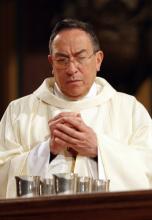
Taking direct aim at libertarian policies promoted by many American conservatives, the Honduran cardinal who is one of Pope Francis’ top advisers said Tuesday that today’s free market system is “a new idol” that is increasing inequality and excluding the poor.
The pope, Maradiaga said, grew up in Argentina and “has a profound knowledge of the life of the poor.” That is why, he said, Francis continues to insist that “the elimination of the structural causes for poverty is a matter of urgency that can no longer be postponed.”
“The hungry or sick child of the poor cannot wait,” the cardinal said.

If we seek to follow Jesus in context, nothing is more contextual than a watershed.
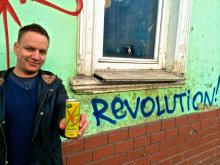
Intending it as a compliment, a friend described my work in in Kiev last weekend as “selling sodas in Ukraine.”
He’s right. I was in the embattled city to represent a company I helped co-found and our Southern California energy drink brand in meetings with more than 10,000 Ukrainian independent business owners.
It was as simple as that and also so much more.
Like Bono, I believe free enterprise is a cure for all sorts of poverty — economic, political, and spiritual.

America’s vaunted Protestant work ethic is getting a makeover: Now it might be more of an atheist work ethic.
In other words, the less religious a state’s population, the more likely it is to have a healthy economy.
The study, titled “Religion: Productive or Unproductive?” by economists Travis Wiseman of Mississippi State University and Andrew Young of West Virginia University, was published in the March edition of the Journal of Institutional Economics.
In the study, Wiseman and Young find that the “measure of total Christian adherents is robustly and positively correlated with states’ unproductive entrepreneurship scores” in a given state.
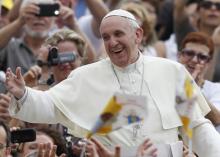
Pope Francis is TIME's Person of the Year. But that is only because Jesus is his "Person of the Day" — every day.
Praises of the pope are flowing around the world, commentary on the pontiff leads all the news shows, and even late night television comedians are paying humorous homage. But a few of the journalists covering the pope are getting it right: Francis is just doing his job. The pope is meant to be a follower of Christ — the Vicar of Christ.
Isn’t it extraordinary how simply following Jesus can attract so much attention when you are the pope? Every day, millions of other faithful followers of Christ do the same thing. They often don’t attract attention, but they keep the world together.

As you make your winter reading list or shop for gifts, consider these 2013 books from Sojourners magazine staff and contributors. Or, buy yourself a gift for 2014.
IN THE LAST YEAR of his life, Martin Luther King Jr. struggled with what are best understood as existential challenges as he began to move toward an ever-more-profound and radical understanding of what would be required to deal with the nation’s domestic and international problems.
The direction he was exploring, I believe, is far more relevant to the realities we now face than many have realized—or have wanted to realize.
I first met King in 1964 at the Democratic Party’s national convention held that year in Atlantic City—the occasion of an historic challenge by the Mississippi Freedom Democratic Party (MFDP) to the racially segregated and reactionary Mississippi Democratic Party. I was then a very young aide working for Sen. Gaylord Nelson of Wisconsin. Sen. Nelson authorized me to help out in any way I could despite President Lyndon Johnson’s effort to clamp down on the fight for representation in the interest of a “dignified” convention that would nominate him in his own right after his rise to the presidency following President Kennedy’s assassination. Johnson didn’t want a bunch of civil rights activists muddying the waters and, not incidentally, causing him problems in the conservative, race-based Democratic South.
After much back and forth, the Johnson administration offered a “compromise” proposal that the old guard be seated (provided they pledged to support him) and that two at-large representatives of the MFDP also be seated.

Too much religion can harm a society’s economy by undermining the drive for financial success, according to a new study in the journal Social Psychological and Personality Science.
The study of almost 190,000 people from 11 religiously diverse cultures is raising eyebrows among some of England’s religious leaders for suggesting Judaism and Christianity have anti-wealth norms.
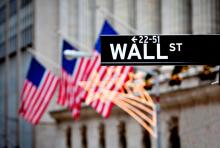
New York Times op-ed columnist, David Brooks, responded, this week, to an intriguing article in the Washington Post about Jason Trigg, a recent MIT graduate, who chose a career on Wall Street as a way to redistribute wealth.
Trigg’s plan is simple. Make lots of money. Live simply. Give lots of money. It’s not far from John Wesley’s advice of, “Earn all you can. Give all you can. Save all you can.” Actually, it’s almost identical.
Brooks perceptively sees the dangers and pitfalls in the road ahead. Most specifically, wealth and the surrounding environment can have a corrosive effect, no matter good our intentions. Brooks writes:
…the brain is a malleable organ. Every time you do an activity, or have a thought, you are changing a piece of yourself into something slightly different than it was before. Every hour you spend with others, you become more like the people around you.
Gradually, you become a different person. If there is a large gap between your daily conduct and your core commitment, you will become more like your daily activities and less attached to your original commitment.
But, while I echo Brooks concern, I disagree with his ultimate conclusion. He goes on to argue that we should pursue careers that elicit passion (seeming to indicate that hedge funds couldn’t be a passion for some people) and that if we truly care about children in Africa, it’s best to go there – not Wall Street.
DANIEL BELL'SThe Economy of Desire juxtaposes Christianity and capitalism, situating both in the context of postmodernity. The main argument of the book is that performing works of mercy—both corporal and spiritual—constitutes an alternative economy that can resist capitalism. Capitalism, in Bell's construal, is an economic system founded on voluntary contracts, private property, and an ideological regime where the rule of the market transcends the rule of law and disregards the reign of God in Christ.
The author draws on the work of philosophers Michel Foucault and Gilles Deleuze to set up a philosophical framework for talking about power and desire. His treatment of Foucaultian insights on the ubiquity of power is meant to decenter the state as the primary engine of social change. Deleuze's work builds on Foucault's argument by conceptualizing people—and society at large—as flows of desire. Taken together, the claim is potentially but not necessarily democratic: Social structures organize desire in particular ways and are malleable due to the fact that power resides not only in the state or market but in the relational networks of everyday people. Under this account, for instance, the typical presidential election is not simply about securing votes, but about directing the aspirations and actions of the electorate toward a collective passion for growing the economy, expanding the middle class, and so on. Capitalism, for Bell, secures our loyalty because it shapes what we do as well as what we desire.
A few strengths of the book stand out. It contains a lucid discussion of the difference between commutative (fair contracts) and distributive (fair proportion of wealth, power, and other goods) justice within society. The scope of the author's analysis is also impressive. Bell substantively engages the arguments of diverse figures from Adam Smith, Milton Friedman, and Friedrich von Hayek to Augustine, Thomas Aquinas, and Martin Luther. Moreover, Bell's contention that proponents of capitalism effectively deny the possibility of social holiness is worth the price of the book.
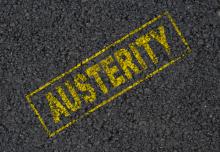
AS THE U.S. Congress and the president repeatedly battle over the debt ceiling and contemplate cuts to Social Security and Medicare, austerity has begun to sound like common sense: "Families tighten their belts during hard times, and so must government."
However, "common sense" in our media age is carefully manufactured, and its underlying analogy doesn't always hold up to scrutiny. "Living within our means," for most families, includes debt financing for housing, cars, and college. Families having a hard time paying their bills may indeed tighten their belts—but they seek more income first, and cut care for children and the sick last. In contrast, federal budget austerity arguments always focus on spending, ignoring the revenue crisis born of decades of tax cuts.
Christians have a more profound reason to question "austerity measures": They conflict with our faith in God's abundance. In parable after parable—the prodigal son, the unforgiving debtor, Lazarus and the rich man—Jesus challenges us to emulate God's generosity. It is the theme of that most eucharistic miracle, the loaves and fishes. How to live in the light of God's abundance is never an easy question, but we must be open to its logic in every area of human existence, including our personal lives, our economy, and our government.
There is, needless to say, a deep contrast between Christian notions of abundance, rooted in God's boundless creative gift, and the modern field of economics, which bases itself on the principle that commodities are scarce. Yet there are also resonances between abundance and modern macroeconomics (the study of whole economies) as it developed in the New Deal period and the first three decades after World War II—especially in the great postwar era of shared prosperity, which saw an explosive expansion of the middle class.
During that period, everyone gave to the national common good, and everyone received—not just through strongly redistributive taxation, but through shared, unprecedented economic growth. And it wasn't simply the "invisible hand" of the marketplace that guided growth: The market was fostered by government's investment in infrastructure and education.
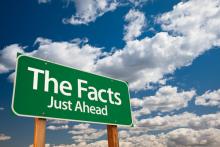
When we listen to political debates about which public policies will strengthen the economy, it is easy to get lost in a statistical maze. Each side presents economic data in a way that supports their own theory of the case.
The Congressional Research Service (CRS) is a branch of the Library of Congress that can help us make our own assessments regarding public policy. According to the CRS website, its purpose is to provide “authoritative, confidential, objective and nonpartisan” analyses to members of Congress.
The relationship between tax rates and the economy is an issue in the current campaign. Thinking about this issue, the CRS looks at empirical data that may or may not confirm theoretical models or ideological assumptions. Thus, like the early TV detective Joe Friday, they want “just the facts ma’am,” and then they try to reach conclusion from these facts.
THE DOCUMENTARY film The Economics of Happiness, produced by the International Society for Ecology and Culture, begins starkly, with full-screen titles that tell us we are facing an environmental crisis, an economic crisis, and a crisis of the human spirit. As the film goes along, it strongly suggests that those three crises are interrelated.
In the end, the filmmakers and their multicultural array of talking heads ask that we stop measuring human progress simply by economic growth and give priority to the quality of life, the health of communities and their cultures, and the sustainability of our economic practices. In short, they suggest replacing our mad rush toward globalization with a back-to-the-future move to “localization.”
Early in the film, writer-director-narrator Helena Norberg-Hodge tells us about the people of the remote Ladakh region of the Himalayas, one of the highest spots on earth to be inhabited by a settled human community. When Norberg-Hodge first visited the Ladakhis in the 1970s, she says, they were self-sufficient, healthy, and mostly at peace, with themselves and each other. Then came the great Western world with its bells and whistles and manufactured needs. Soon the people became dissatisfied with their traditional way of life and were driven to compete in a cash economy. Before long, there was open hostility between Muslims and Buddhists, who had co-existed peacefully for centuries, a fraying of the social fabric, and an atmosphere of gloom and depression.
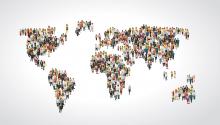
An examination of current public debate reveals a divide between the “brown agenda” of economic opportunity and the “green agenda” of environmental sustainability.
On the one hand, a “brown agenda” concerns economic opportunity, or in other words, the alleviation of poverty. In light of ongoing distress surrounding malnutrition, infant mortality, and unemployment, the brown agenda is important, urgent, and worthy of support. On the other hand, a “green agenda” relates to environmental sustainability and care for the Earth. As scientific reports affirm the reality of climate change, and in recognition of decreased access to clean water and biodiversity around the world, the green agenda is also deeply important, urgent, and worthy of support.
With the above thoughts in mind, one recognizes that both brown and green agendas are essential for the promotion of life. However, the proponents of each agenda seem to be at odds with the adherents of the other. For example, far too many with a “brown agenda” believe that the best way to reduce poverty is to reduce environmental controls, and to the contrary, those engaged with the “green agenda” too often place the needs of the Earth before the livelihoods of the poor and marginalized. As a result of this persistent struggle between “brown” and “green," progress on both agendas is limited, and our path toward economic opportunity and environmental sustainability is severely off course.
Writing for Newsweek Magazine, Joel Kotkin wonders if the Millennial generation will be remembered as the "screwed generation:"
"Today’s youth, both here and abroad, have been screwed by their parents’ fiscal profligacy and economic mismanagement. Neil Howe, a leading generational theorist, cites the “greed, shortsightedness, and blind partisanship” of the boomers, of whom he is one, for having “brought the global economy to its knees.”
How has this generation been screwed? Let’s count the ways, starting with the economy. No generation has suffered more from the Great Recession than the young. Median net worth of people under 35, according to the U.S. Census, fell 37 percent between 2005 and 2010; those over 65 took only a 13 percent hit.
The wealth gap today between younger and older Americans now stands as the widest on record. The median net worth of households headed by someone 65 or older is $170,494, 42 percent higher than in 1984, while the median net worth for younger-age households is $3,662, down 68 percent from a quarter century ago, according to an analysis by the Pew Research Center."
Read more here
Economists
The Daily Show correspondents weigh in on why economists are more than just nerdy, high-panted economic yodas with no accountability. More inside the blog.
The cars in Cuba fascinate me. Where else in the world can one see a classic 1956 Oldsmobile, a shiny 1957 Chevy, and a 1970 VW bug alongside a new Audi and modern Chinese tour buses?
Our guide said there are four generations of cars in Cuba. First are those pre-revolutionary American cars—the vintage Chevys, Fords, Oldsmobiles, and Studebakers from the 1950s that somehow keep running. Then came the Russian-made Ladas, the small, ugly, square compacts that look like Fiats stripped of any Italian design.
By the ’70s and ’80s, Japanese and other Asian cars started trickling into Cuba, and they became the auto of choice after the fall of the Berlin Wall. Then, in the last decade, the more expensive European cars began showing up. More recently, a fleet of fancy buses, mostly from China, has arrived to shuttle around the 2.5 million tourists now visiting the island each year (and improve public transportation in general).
The cars, of course, reflect the stages of Cuba’s economic relationship with the outside world: the embargo from the U.S., its initial reliance on all things Russian, then growing global trade, followed by the influx of European tourists, and the recent economic resurgence of China.
Cars can now be bought and sold by Cubans. This is one example of dramatic new economic policies, approved last April, being instituted in Cuba. Dr. Osvaldo Martinez, director of Cuba’s World Economy Research Center, called these changes “shock therapy,” like that being experienced by Greece, Spain, and many countries. Cubans should no longer “idolize” the Cuban economic model, Martinez said. Salaries have been increasing faster than productivity. Foods are being imported that could be produced domestically, but weren’t because of the inefficiencies of centralized, Soviet-style agriculture. There has been an “exaggerated number of state employees,” and massive layoffs have been occurring. At times Martinez nearly sounded like a Republican.